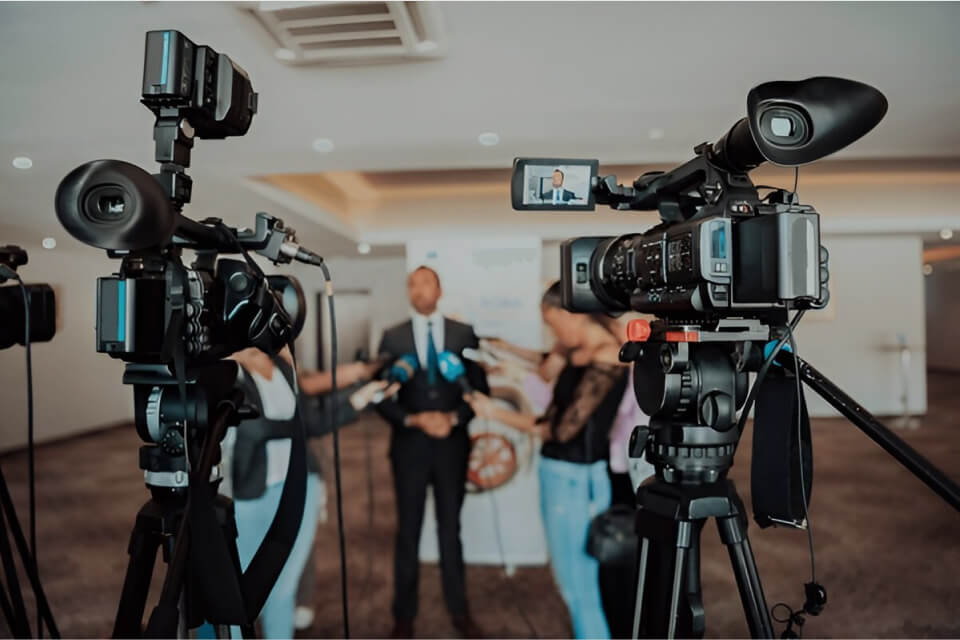Introduction
Public Relations and Earned Media are two powerful tools every African business owner or student should know. In today’s digital age, building a strong name is not just about flashy or engaging adverts. Instead, it is about what people say about you when you are not there.
Public relations and earned media help you win trust, reach more people, and grow your brand without always spending money on adverts. So, why not learn how to use Public Relations and Earned Media for your own success?
Why Public Relations and Earned Media Matter
First, let’s talk about why these things are important. Public Relations (PR) is about shaping how people see you through news, interviews, social media, and events.
Earned Media goes further. “It occurs when others share your story like journalists writing about you, influencers sharing your product, or customers leaving happy reviews. This attention is usually free and is dependent on the quality of your product(s). Earned media attention is powerful because people often trust it more than adverts.
Why is this so useful?
Earned media works like free recommendations. Studies show that good media mentions can be up to five times stronger than adverts. Customers believe friends, news, and independent voices more than brands telling their own story. This trust then leads to more sales, more website visitors, and loyal customers who return again and again. At the same time, it saves money since you are not paying for adverts. It also improves your reputation and makes your business easier to find online.
So, beyond just making people notice you, earned media builds long-term value. It keeps loyalty strong and convinces people your idea or business is worth following. Especially in Africa’s busy market, being spoken about in a good way makes your brand stand out.
Difference Between Paid Media and Earned Media
Now, let’s see the difference between Paid Media and Earned Media.
Paid Media is when you pay for adverts, either on TV, radio, social media, or websites. You control the message, but the audience knows it is an advert, so they are more alert, making them trust it less.
Earned Media is different. It happens when people share your story for free. It could be through news, blogs, social media, or reviews. You cannot fully control what is said, but when people talk, it feels real and powerful. However, it is not easy. You must use good PR, keep your branding strong, and build honest relationships with journalists and customers.
For African brands, this balance is key. Paid media can bring quick attention, but earned media brings lasting growth. Both together help your business succeed. So, as you plan, focus on building a smart Public Relations and Earned Media strategy. With the right effort, even a small startup can grow into a trusted name in Africa’s fast-changing market.
Getting Press Coverage Without Ad Spend
Public relations (PR) and earned media are smart ways for African startups to get noticed, build trust, and attract new chances without paying for adverts. It is all about telling your story in ways that make people, and the press, want to share it. Let us see how young entrepreneurs can use PR and earned media through local news, tech blogs, and radio.
Leveraging Local News Outlets
A good place to start is local news. Newspapers, city magazines, and community bulletins always care about stories that touch their people.
As a startup, you should share real stories that show how your business helps the community or solves a local problem. Instead of sending general press releases, pitch journalists with clear facts, numbers, and human stories – like how your app helps traders or farmers. Always shape your message for the local context and language.
Moreover, build friendly relationships with reporters. Make things easier by giving them exclusive interviews, photos, or behind-the-scenes content. Since connections matter in Africa, keep your talks personal and genuine. Also, celebrate community wins, reply quickly to requests, and thank journalists for coverage. These small steps will make your startup memorable.
Reaching Out to Tech Blogs and Online Publications
To grow your reach, turn to tech blogs and online platforms. These sites speak to a larger but targeted audience and they are always searching for new African innovations.
Start by finding blogs that write about your sector. Follow them, read their articles, and even share them on your social media. When you are ready to pitch, keep your email short but valuable. Explain what makes your startup unique, why your idea is timely, and how readers can benefit. If possible, add real numbers or quotes from users.
This approach makes bloggers more willing to feature your story. Over time, these mentions help you gain investor attention—because earned media proves your value better than adverts.
Using Radio and Community Platforms
Radio still has strong power in Africa, especially outside big cities. Local stations love uplifting and helpful stories. You can call or email producers with news about your business, community impact, or expert advice. Offer to join talk shows or discussions. These give you the chance to speak in local languages and connect directly with listeners.
Also, community WhatsApp groups, Facebook pages, and online forums spread news fast. Stay active in these groups, share updates, answer questions, and show your achievements. Get community leaders involved, ask for testimonials, or send short voice notes people can share.
Remember, these platforms respect trust and closeness, so always be clear and respectful.

Crafting Effective Press Releases
In Africa today, getting noticed by journalists and customers can change everything for your business. One strong way to achieve this is through press releases. These are short write-ups that share your company’s news and achievements. When written well, they help you stand out, earn free media attention, and attract new people to your brand.
Elements of a Strong Press Release
A good press release always starts with a catchy headline. Keep it short but strong so it grabs attention quickly. Right below the headline, place your company logo for clear branding.
After that, write a short opening paragraph that answers the five key questions—Who, What, Where, When, and Why. This makes your story easy to understand.
Next, write body paragraphs with more details and facts. Always use short sentences and simple words because journalists read many releases daily. To make your story feel alive, add quotes from team members, customers, or partners. This shows real voices behind your news.
At the end, always put your contact details, links to images, and a short note about your business. Also, check for grammar and spelling errors before sending.
Highlighting the Unique Angle of Your Business
Now, one of the best ways to shine is to show what makes your story different. Is it a new product? Are you solving a big community problem? Or have you won an award? Share it clearly.
If you support women entrepreneurs or work in rural areas, say it early. Journalists love stories that connect with people. To make it stronger, use data, testimonials, or personal quotes to back your claims. This adds both trust and emotion.
Timing and Distribution Strategies
The timing of your release is very important. Send it early in the week or just after a big event. If your news should stay private until a set time, write “Embargoed” at the top. This shows respect to journalists.
When distributing, don’t limit yourself to only big media houses. Also target local papers, online platforms, and specialist blogs. Share it through email and social media. After sending, politely follow up with journalists and offer to give interviews. This helps build lasting relationships.
In the end, remember that press releases are about telling your story clearly and truthfully. When you make them simple, unique, and timely, you increase your chance to gain media attention, attract investors, and win more customers.
Writing Compelling Media Pitches
If you want people to notice your brand, business, or cause, learning how to write a good media pitch is very important. A media pitch is like a short message you send to a journalist to convince them to write about your story. In Africa, where many voices are competing for attention, writing a pitch that stands out can help you get free media coverage and build strong connections. But how can you do it well? Let’s look at some key steps.
How to Personalize Pitches for Journalists
First, you must always personalise your pitch. This means making it fit the journalist you are writing to. Do not just copy and paste the same message for everyone. Start by using their name, and mention something they wrote before.
Then, make sure your story matches their interests and style. You can do this by reading their past articles, following them on social media, or checking which topics they like.
Also, use a subject line that is short but eye-catching, so they want to open your email. In your first line, tell them quickly why your story matters to their readers.
Finally, attach helpful materials like press releases, images, or fact sheets. When you respect their work and make your story relevant, you have a higher chance of getting a reply.
Focusing on Social Impact and Human Stories
Next, remember that journalists love human stories. They want stories that make people feel something and also make a difference in society. So, show the human side of your brand or project.
For example, explain how your work is improving lives, creating jobs, or solving problems in Nigeria or Africa. Use real-life examples and add quotes from people who have benefited.
Stories about local heroes or fresh ideas also catch attention. If your pitch connects with issues people care about right now, it will be even stronger. By highlighting social impact, you make your pitch more powerful and valuable.
Following Up Without Being Pushy
Finally, after sending your pitch, you may need to follow up. But you must do it politely. Wait a few days, then send a short reminder. Mention your story again and why it could interest their readers. You can also add new information if you have it. Never send too many messages, because journalists are busy and get many pitches daily. If they do not reply after two reminders, move on. Being respectful shows professionalism and helps you build long-term relationships.

Building and Maintaining Media Relationships
Public relations and earned media are ways to make people notice and trust your brand without paying for adverts. Now, let’s see how you can connect with journalists, share helpful insights, and keep long-term trust with the media in Africa.
Networking with Journalists and Editors
If you want people to know your story, you must learn how to connect with journalists and editors.
First, introduce yourself politely, either at events or online through platforms like LinkedIn.
Also, always show interest in their work. Read their articles, share them, and give compliments when necessary.
Then, respond quickly when they reach out and always remain respectful.
For African entrepreneurs, networking with local journalists is very important. They always need reliable voices who understand the market. Instead of waiting for them to write about your business, you can give useful comments about trending issues in your industry. For example, you can share opinions on technology, agriculture, or digital growth. This way, your name becomes one of the first they remember.
Good relationships with journalists can also help when you face problems. Sometimes, they can give you space to explain your side or even support you when your reputation is at risk.
Becoming a Reliable Source for Insights
To gain more attention in the media, you must prove that you are trustworthy and knowledgeable.
Start by identifying your area of strength.
Then, share useful and honest insights regularly. You can break down difficult topics, provide data, or even write your thoughts on LinkedIn.
Journalists love stories that show positive impact. So, do not hide your success stories. Send press releases, share updates, and be open to interviews. When journalists quote you, people see you as credible.
Remember, people trust news reports more than adverts. So, if your business appears in local newspapers or on TV, more people will connect with your products or services.
Maintaining Long-Term Media Trust
Building trust with the media is not a one-time thing. It must continue. Always reply quickly, speak honestly, and avoid giving wrong information. Journalists value people who keep their promises.
Also, never forget the journalists who supported you in the beginning. Keep them updated, invite them to your events, and thank them for their work. Over time, this loyalty builds stronger bonds.
Another useful step is media training for you and your team. You should also prepare a media kit with photos, bios, and key facts to make journalists’ work easier.
When you remain consistent and honest, journalists will always listen to you, even during tough times. This trust helps you grow, face challenges, and build lasting success.
Measuring the Impact of Earned Media
Earned media is the free attention you get when journalists, influencers, or even normal customers talk about your business. This can be in the news, on social media, or in reviews. People trust earned media more than adverts because the message is coming from someone else, not you. But then, how do you know if this media attention is really helping your business? Let us explain step by step.
Tracking Mentions and Coverage Reach
The first way to check if your earned media is working is to see if people are talking about your business. You can use simple media tracking tools to count every mention in newspapers, blogs, radio, or social media platforms like Facebook and X (Twitter).
However, it is not only about counting. Coverage reach means checking how many people might have seen or heard those mentions. For example, if a popular Nigerian radio station talks about your brand, thousands of listeners will hear it.
To measure this, check how many people buy the newspaper, follow the blog, or listen to the radio show. If your story comes out on a big platform, it is a good sign that your media work is successful.
Evaluating Audience Engagement
Counting mentions is fine, but seeing how the audience reacts is even better. Engagement shows if people actually care about your story. For instance, when people share your news on social media, comment on it, or start discussions, they are engaging.
Use simple tools to check likes, comments, clicks, and shares on your website or social pages. The more engagement, the more people are connecting with your brand.
You can also follow hashtags or keywords from your campaign to see the mood—are people happy, confused, or not interested? Engagement also helps you understand if your story is reaching the right audience. Moreover, it attracts investors because they notice when people are talking about your brand.
Turning Media Coverage into Business Growth
At the end of the day, the goal of earned media is real growth, not just noise. Ask yourself: did the coverage bring more visitors to your website? Did more people call or buy after seeing your brand in the media?
Always check for increases in sales, visits, or even walk-ins after big coverage. You can also use surveys to ask new customers how they found you.
Investors too, especially those interested in venture capital, want to see these results before they invest. When your brand enjoys steady, positive media coverage, it opens new markets, attracts new customers, and even brings partners who want to work with you.

Frequently Asked Questions (FAQs)
1. Why is earned media more valuable than paid media?
Earned media is seen as more credible because it comes from third-party sources. People trust it more than paid adverts, as it’s not controlled by the brand.
2. How does Public Relations (PR) help you get earned media?
PR helps by creating newsworthy stories, press releases, partnerships, and sending information to journalists so they can pick up and share your news.
3. What strategies work best for getting earned media?
You need consistent PR outreach, strong relationships with reporters, engaging news, and authentic brand stories. Quality content and being responsive helps a lot.
4. How do I measure the success of earned media?
You can track press mentions, social shares, website visits from links, and increased customer engagement or sales after publicity.
5. Is earned media cost-effective for African startups?
Definitely. It reduces advertising costs while boosting reach and reputation through trusted sources. PR is a smart way to gain earned media even on a tight budget.
Conclusion
In conclusion, public relations and earned media can really change the story for African brands. When a brand appears in the news or on big platforms without paying for publicity, people trust it more. It gets more credibility, and also more attention from both local and global audiences. PR is not only about sending press releases. It is also about building strong relationships with journalists, answering quickly when chances come, and sharing true stories that capture people’s interest. This is why learning how to use public relation and earned media is very important for anyone who wants to grow in Africa’s fast markets.
As more investors look into Africa’s creative space, smart brands should use PR to face challenges and also build strong reputation. With good PR plans and journalist connections, African businesses can get positive attention without spending too much on adverts. So, let your good work speak, and watch the buzz grow.




1 thought on “How to Use Public Relations and Earned Media”
I don’t usually comment but I gotta say thanks for the post on this amazing one : D.